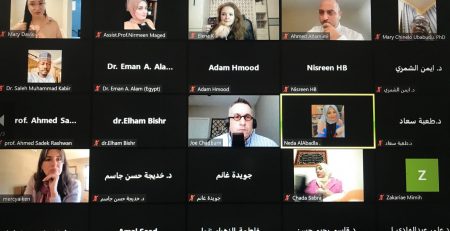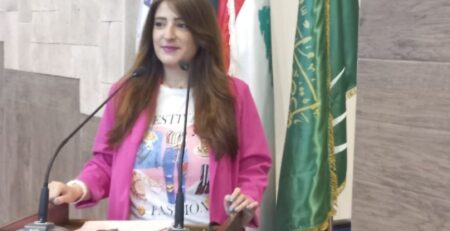What does France want from the Land of Cedar?
Written by researcher: Samia Ben Yahia/ Algeria.
Away from the hypothesis of the conspiracy and all the possibilities that indicate that the recent Beirut explosion was fabricated, and before asking our legitimate question: “What does France want from Lebanon?” We must first put things in their true balance towards this small country that suffers a lot, in which the more we say signs of a solution appear, the problems aggravate again at the speed of light, as if the Lebanese people historically and in the future have this inevitable fate.
Lebanon is a country that suffers from a long epic of corruption and deep-rooted sectarianism, which cast a shadow over the country’s economy. Lebanon is the third most indebted country in the world after Japan and Greece in 2019, according to World Bank statistics, as the public debt rose to $86.2 billion, or more than 152%. The debt-to-GDP ratio, ranked 137th out of 180 countries according to the 2019 Corruption Perceptions Index published by Transparency International. The country is also dependent on imports, excessive government borrowing, not to mention the country’s failure to solve many crises such as the waste crisis in Beirut in 2015, all the reforms promised by the government after the recent anti-sectarian protests on October 17, 2019, on the one hand, the exacerbation of the number of Syrian refugees in Lebanon, which according to government statistics reached 1.5 million people, represented an additional burden for the Lebanese state, as government branches and public sectors suffer from bargaining bribery, embezzlement of property, nepotism, and vote buying. The latest of which was the current government’s abolition of the position of the minister in charge of anti-corruption. Thus, it can be said that the new administration, which clearly shows its loyalty to Hezbollah, is going through a complex economic and humanitarian phase, exposing half of the Lebanese people to the danger of poverty.
As for the political system, we know that the Lebanese system is based on a sectarian basis dating back to the Taif Agreement of 1989, known as the National Accord Document, where there are approximately 18 different religious sects in Lebanon. Therefore, the roots of political unrest in Lebanon go back to the end of the civil war and the decision to share power through sectarian quotas. Regardless of the nature of the political party, there is no organization, transparency, and accountability in Lebanon, therefore the port explosion is nothing but an avalanche of rage over a grim reality in this country that reflects the extent of nepotism and corruption.
So, what about the dimensions of the French position and the hypothesis of soft colonialism in Lebanon?
- Undoubtedly, if we analyze the French position, and this soft French policy, it did not come from a vacuum. The French-Lebanese relations are not new today. Rather, they have deep historical roots that we cannot present. What matters most to us is to return to the analysis of the statements of the French President Emmanuel Macron following his recent visit to Lebanon after the explosion that occurred in Beirut saying, “I will talk to all the political forces to ask them for a new agreement. I am here today to propose to them a new political charter.” Of course, this statement is not surprising, as France has previously called on Lebanese politicians to undertake reforms to address the deteriorating situation in the country on January 25, when President Emmanuel Macron said, “His country hopes that the new Lebanese government will work to fulfill the hopes of the people by implementing the reforms pledged during the CEDRE Conference 2018” and this was indicated by the diplomat Gerard Araud, the former French delegate to the United Nations. – “The CEDRE meeting held in April 2018, where more than $11 billion was put on the table to preserve the treasure that is Lebanon in the region on French terms, since then France has not stopped asking the Lebanese to fulfill these conditions.” Thus, it becomes clear what the nature of the reforms demanded by Macron is the Lebanese system, which is the need to establish a system that is not subject in any way to the control of Hezbollah, and the evidence for our assertion in this statement is what was revealed in the French situation when Le Drian refused to describe it as a “Hezbollah government.”
- As long as France will lead the locomotive for coordinating international and European aid to Lebanon – by inviting it to a donors’ conference to help Lebanon, this is another indication that France is determined to impose its agenda, despite French President Emmanuel Macron’s denial that he “does not seek to pull the strings in Lebanon and revive France’s influence in Lebanon.” On the other hand, the rest of the statements confirm that “France will never leave Lebanon, and will not abandon Lebanon and the Lebanese, and that” the heart of the French people is still beating on the pulse of Beirut” and that he came there to show the support of the French nation to the Lebanese people, and that the French aid will not go to “the hands of the corrupt,” but will seek a new agreement with the political leaders in Lebanon.
- The other statement of President Macron comes, “It is a political, moral, economic and financial crisis that has victimized first of the Lebanese people and imposes very quick reactions, and therefore, for me, this visit is also an opportunity for frank dialogue, and a demand also on the Lebanese political forces and institutions, as I believe that today we cannot dispense with this dialogue of truth, while the coming hours will be important for me as well, and finally, I also wanted to meet with civil society, writers, intellectuals, businessmen and journalists to have another voice and another look at contemporary Lebanon, and its crisis. I also willing to be able to exchange views on solutions, their proposals and their way of seeing challenges of the moment” so that the statement expresses important dimensions borne by Emmanuel Macron’s visit to Lebanon, the most important of which are:
- Re-arranging the role of the Francophone elites in Lebanon in the future, as some called for a new French mandate, which was evident through the petition that was signed by a group that does not represent all the Lebanese people, and which calls for “Lebanon’s return to the French mandate for the next ten years, and this What the phrase “modern Lebanon” foretells, which undoubtedly will carry a radical change, whether at the internal or regional level, which reinforces the hypothesis of “Lebanon being semi-protected.”
- France will also exploit the anger of the Lebanese people and the demands to topple the regime, to put the fate of Hezbollah on the negotiating table and in front the French and international conditions.
- What is more, France has for years controlled, through the CEDRE conferences, the adaptation of European conditions for aid to Lebanon, which reinforces the French political and economic agenda.
- Paris will continue to impose its orientations on the United Nations Security Council resolutions on Lebanon, in exchange for a paralyzed Lebanese political system. This strengthens the French position in any French geopolitical project in the Middle East from the gateway to Lebanon, which was pointed out by political scientist Frederic Insel, saying: “If the All the presidents of the Fifth Republic have expressed true friendship with Lebanon, they have never done so with such force, so quickly and on such terms.”
At the conclusion of this article, whatever the possibilities and assumptions about the background of the visit of French President Emmanuel Macron, and the French position regarding what happened in Lebanon, we are certain that there is a French agenda whose features will become more clear in the near future. This proposition is supported by many articles published in European newspapers, including the one published by the Italian newspaper La Repubblica under the title “The Great Game of the French Head of State” in his attempt to weave a geopolitical network to repel the tendencies of Turkish hegemony in the Mediterranean, especially as this visit coincided with the announcement of a maritime, energy and economic agreement between Greece and Egypt. On the other hand, we must not forget that this is what is arranged in the Middle East and the Israeli position, including regional and international competition in the region. Perhaps the colonial memory that surfaced strongly with the visit of the French President may actually carry with it a systematic protectionist returns in the twenty-first century. As for the Lebanese side, if it wanted real reform and giving priority to the interest of the Lebanese people, they must take a courageous stand to break free from sectarian shackles and revolt against their corrupt leaders.












Leave a Reply